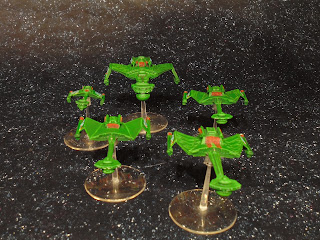Thanks to a prod from Island Mike, I followed through on Lund's next album, Losin' Lately Gambler, and found that even without the strong theme, there was a lot to like about this Edmonton singer-songwriter and his band, the Hurtin' Albertans. Despite moving to a larger label in hopes of greater international airplay, the savyy lyricism, rural pathos and sly humor had all survived inteact.
Cabin Fever, Lund's latest work, comes from a slightly different place than its predecessors; the artist had been building a cabin out of town with his uncle and long-time girlfriend for quite some time, but by the time it was finished, the girlfriend had moved on and his uncle had passed on. The solitary times mandated by personal circumstance and inclement weather informs pretty much every track of this album, giving it a much darker undertone than his previous releases, and it forages even further afield in terms of musical styles and influences. I can say without fear of contradiction that Cabin Fever is the best cowpunkabilly folk album I've ever listened to, and his band has never sounded better. The album was recorded live to tape, with no overdubs, and has an energy to it that more methodically constructed albums can't hope to match. The deluxe edition comes with a second, acoustic disc, called the "Cabin Side", which really showcases the musicianship at work on this record.
Because he tends to sing about rusticated themes like country living, livestock, and gunfighters, there are many who will quickly pigeonhole (and likely dismiss) Corb Lund as a country& western artist, which is inaccurate and unfortunate in equal measure. A song title like "(You Ain't a Cowboy) If You Ain't Been Bucked Off"can certainly reinforce this, and make it easy to overlook both the decade he spent in Edmonton punk/metal/whatever band The Smalls, or his time at Grant MacEwan College studying jazz guitar. If you can resist the urge to categorize, you find a singer-songwriter who is uniquely equipped to share brutally honest insights and personal revelations in a multiplicity of ways.
The lead-off track, "Gettin' Down On the Mountain" backs up its peak-oil survivalist outlook with heavy bass and guitar that have a blues-metal vibe to them. "Bible On the Dash" (performed as a duet with his Texas counterpart, Hayes Carll), evokes nothing so much as the lovable scofflaw spirit of Arlo Guthrie. "Mein Deutsches Motorrad" and "The Gothest Girl I Can" have a fast-paced rockabilly twang that not only suit the subject matter (i.e. fast bikes and faster gals) so well, it reminded me how overdue I am to listen to some Duane Eddy.
Certainly there is some uncut country on here for those that like to get their two-step on, such as "Drink It Like You Mean It", but most of the ventures into this arena have their own twist. "Cows Around", a sarcastic examination of the joys of cattle ownership, is a great example of western-swing while "September", a bittersweet goodbye between a rancher and the girl leaving him for the big city, reminds me a bit of Chris Isaak, both in terms of the echoing guitar and the crooning yodels in the chorus. The balance between a man who accepts the inevitable but isn't happy about it is captured perfectly in lyrics like:
Stay with me through SeptemberYeah I know there ain't much to doAnd I guess I did my share of starving in the city, I was young once tooI can picture how you're livingIn a tiny fourth floor flatWell there's times that a thousand acres in the Rocky Mountains can't compete with that
The Edmonton Journal review from a couple weeks back talks about this album as Lund getting in touch with his inner Nick Cave, and make no mistake, there are some tracks that venture into the macabre, like "Dig Gravedigger Dig" (with some absolutely blistering harmonica action courtesy of talented multi-instrumentalist Grant Siemens), and my favourite title, "Priceless Antique Pistol Shoots Startled Owner". The most haunting song to me though, is the penultimate track, "One Left in the Chamber", with its cryptic yet palpable tale of regrets punctuated by the ominous "..and the one left in the chamber oughta do." It's the kind of somber poetry that if you saw a friend post it on Facebook, I hope you would give him a call and make sure everything is okay.
When I try to sum up Corb Lund for people who haven't heard him, or those who might say, "Oh, I don't listen to country", I don't bother trying to explain the futility of labeling artists who are talented enough to explore genres as effortlessly as he does, or that he is a self-described 'dissident' country artist, or that the awards circuit calls him a "Roots Artist" (a category he has won from 2004 at the Canadian Country Music Awards).
Instead, I try to explain that the best artists are those that can express emotional content in an honest and compelling fashion. Growing up among ranchers in Taber gave him those insights, and his musical experiences to date, Smalls and all, give him the tools to articulate it. These themes are always found, never manufactured, and his honesty is his greatest artistic trait, because it allows him to take these timeless, city-free themes, as tired and overused as they may be, and gets us to look at them in a new way.
Corb Lund is to music what Joss Whedon's firefly was to television, and anyone who appreciates a good song or a good story owes it to themselves to give Cabin Fever a listen to.













.JPG)





